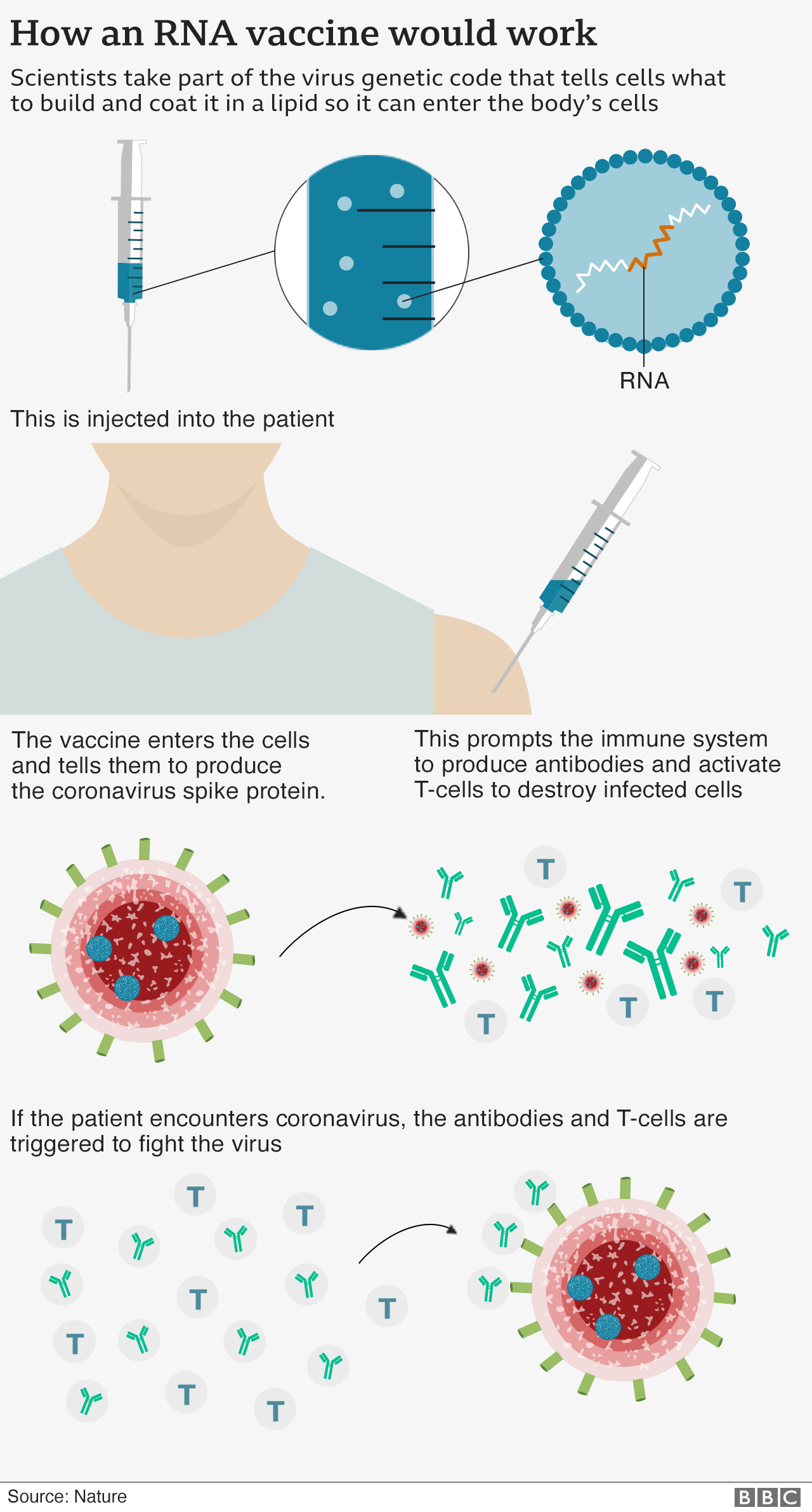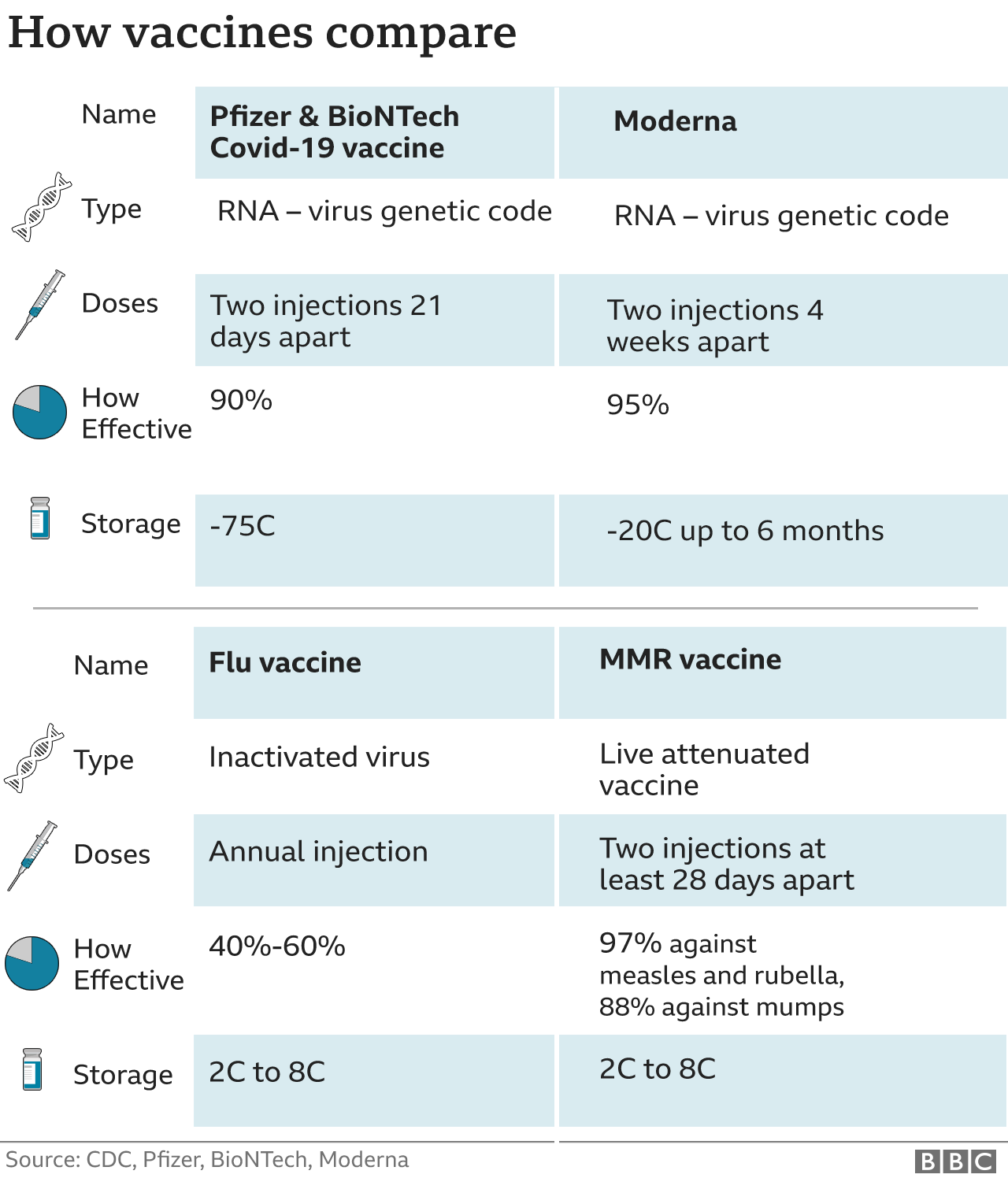First The Vaccines, Then The Logistics Surrounding Delivery
"We typically haven't had mass vaccinations campaigns for adults that required multiple doses.""This is something that could be easily overlooked, but could be an Achilles heel in our program."Dr.Kumanan Wilson, epidemiology professor, vaccine policy expert, University of Ottawa"Additional staff may be required to accommodate the added workload to administer the vaccines, manage wait lists and appointments and monitor inventory.""I have heard some health professionals state that giving the COVID-19 vaccine is going to be like experiencing flu season two times over in terms of their anticipated workload."Dr.Sherilyn Houle, pharmacy professor, University of Waterloo
 |
| Moderna scientists used an innovative technique for developing the vaccine so quickly Moderna |
The world of public health is beginning to focus on the work involved in administering newly-approved COVID-19 vaccines to billions of people worldwide -- in two-shot injections, about a month apart. Logistics for immunization is vastly complicated by the fact that people will receive an initial shot, and then weeks later be expected to turn up for the second and final shot of the vaccine. That, apart from the decisions to be arrived at determining who will be receiving the first shots. Oh, and concerns over the level of uptake, given public resistance to the very idea of the COVID vaccine..
The one issue that appears quite perturbing to the experts, however, is that for the majority of the pharmaceutical companies the vaccine they're promoting is a two-stage inoculation, vastly complicating the entire problem of delivering the vaccine expeditiously, efficiently and reliably. Concerns that people will accept the idea of an initial shot, then resist the urging of medical professionals to return to complete the process with the second shot.
There are ample reasons for concern, given research that consistently concludes that up to 70 percent of adults prescribed a multi-dose vaccine fail to return once the first injection has been done. Should a similar pattern evolve of non-compliance with COVID, it would obviously impair the goal of reaching herd immunity. A good proportion of the public has always been resistant to taking the annual flu shot, irrespective of health authorities' call on the public to do just that.
 |
Pediatric infectious disease specialist Dr.Caroline Quach at the University of Montreal, a member of the national advisory committee on immunization, acknowledges that having to administer two doses will represent "a challenge", but "it has to be done". Dr.Wilson and his colleagues developed a mobile app to send text messages reminding people they're due their second dose of the vaccine.
On Monday, a report was issued by AstraZeneca collaborating with Oxford University, that their vaccine was between 70 and 90 percent effective at preventing COVID-19, depending on the dose administered. These front-runners all need two doses for effectiveness; a gap of 21 days is required for Pfizer's vaccine and 28 days for Moderna's and AstraZeneca's. Of seven vaccines completing late-stage trials, one only, developed by Johnson & Johnson requires a single injection, but it is still awaiting Phase 3 results.
Adult vaccination research confirms findings with a consistent theme; "suboptimal". Only 40 to 50 percent of people went on to complete their two-dose hepatitis A and varicells (chickenpox) vaccinations, and numbers fall even lower for teens and young adults. Published last year, a study out of the U.K. found a mere 11 percent of adults received two doses of Hepatitis A vaccine in the space of a year, rising to 23 percent by 36 months.
In 2018, a similar American study suggested a mere 32 percent of adults obtained their second Hepetatitis A injection with 42 months. Reasons/excuses vary from people admitting to researchers they had no idea an additional shot would be required; they couldn't fit an appointment into their schedule; or they needed a reminder, according to Dr.Houle at University of Waterloo, citing results gleaned with a similar study using Alberta data.

Labels: COVID Vaccines, Delivery, Two-Dose, Uptake

0 Comments:
Post a Comment
<< Home